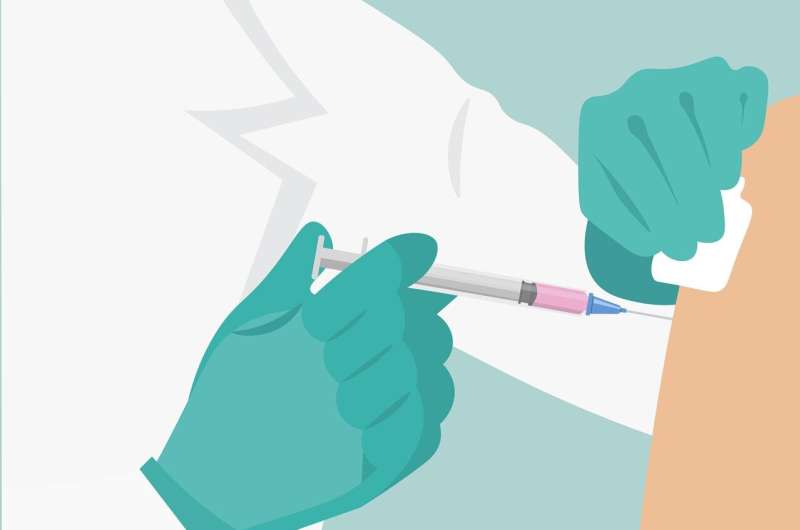
Danish health authorities said Monday a third dose of the COVID-19 vaccine would be offered sooner to everyone over 40 to curb the spread of the Omicron variant.
“Due to the new and more contagious Omicron variant the Danish Health Authority has decided to push the third jab for everyone aged 40 and above, so they get the vaccine four and half months after the second jab,” the health authority said in a statement.
By reducing the interval of the doses, “we will be able to enter the winter with better protection for those at increased risk of severe disease and increased immunity in the population,” director Soren Brostrom said.
A third dose is “safe and effective” as soon as three months after the initial vaccine course, the European Medicines Agency (EMA) said last week.
Denmark also recorded a record number of new cases of COVID-19 on Monday, with 7,799 confirmed infections in the previous 24 hours.
Over a week, the number of cases is also at its highest since the start of the pandemic at 46,189 cases, a jump of more than 50 percent compared to the previous week, according to data from Danish health authorities compiled by AFP.
Danish health authorities on Monday also said they expect the new strain, which was first detected in South Africa last month, to become dominant in the capital Copenhagen from this week.
The UK announced on Sunday evening that it would accelerate the rollout of booster doses, opening them up to all over-18s before next year.
Denmark is second worldwide only to Britain in confirmed cases of Omicron, with both countries having extensive sequencing of samples to detect variants quickly.
As of Monday, 3,473 cases of Omicron had been identified in the Nordic country of 5.8 million people, where 80.6 percent of the population over five years old has already received two doses of the vaccine.
The Omicron variant appears to spread faster than the Delta variant, making vaccines less effective but causing less severe symptoms, the World Health Organization said Sunday, while stressing that the data remains patchy.
Source: Read Full Article
